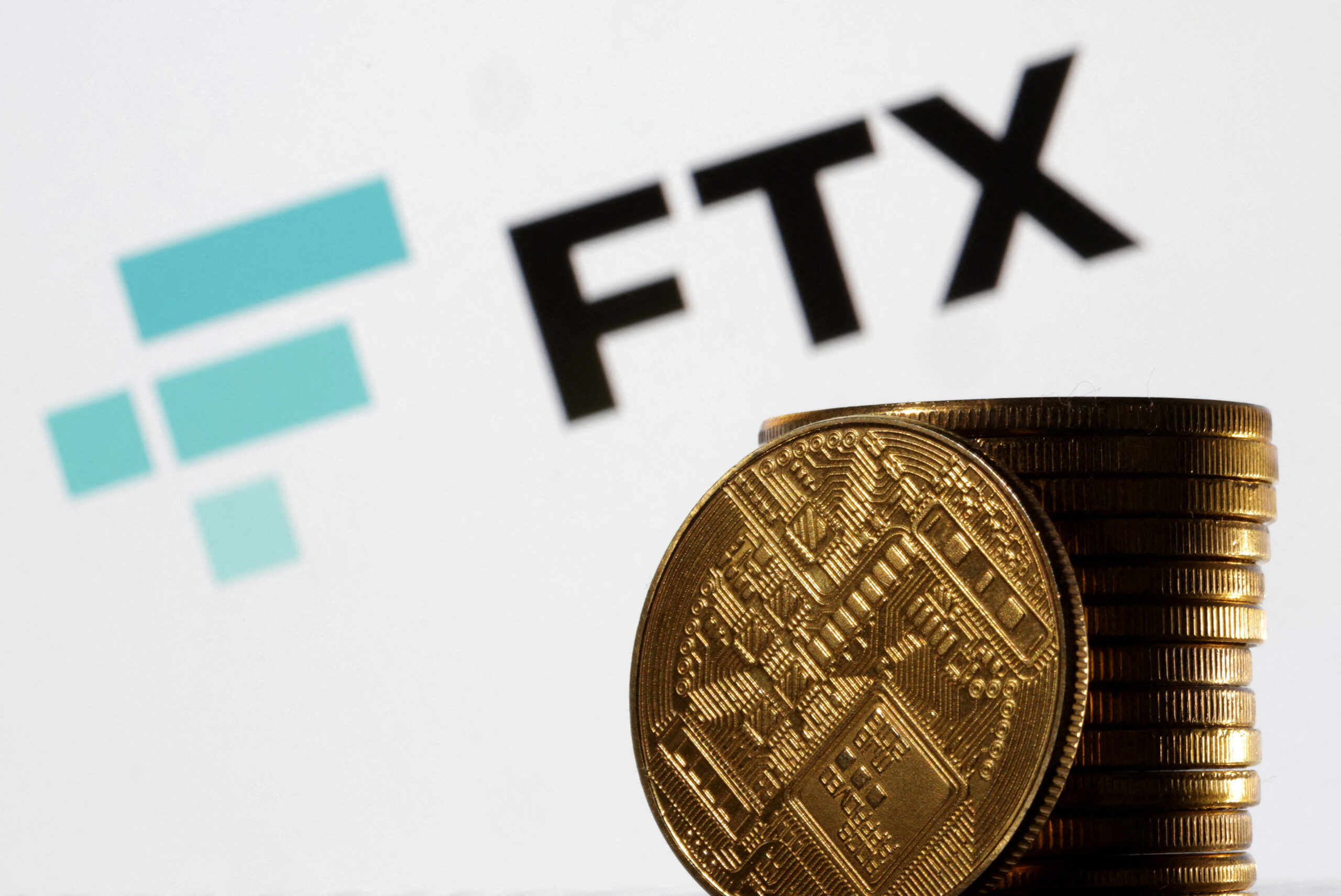Sam Bankman-Fried has been in the news for the good, wrong, and sometimes really weird reasons. Once hailed as the poster boy of the crypto world, with a net worth that soared to $23 billion at some time, Bankman-Fried watched his crypto empire collapse in 9 days. He is now watching his close friends and accomplices testify against him in a Manhattan courtroom in a lawsuit filled with accusations of fraudulent, malicious, and deceptive management practices.

At just 30, his meteoric rise and political influence epitomized crypto’s transformative potential. According to his ex-girlfriend, accomplice, and former CEO of Alameda Research, Caroline Ellison, he dreamt of one day leading the United States as president.
In 2021, Bankman-Fried was honoured by Forbes in its “30 Under 30” list, which featured 20 other blockchain leaders and innovators. Interestingly, Ellison herself was acknowledged in the same list the following year.
 However, as he is colloquially called, SBF rose to the pinnacle of the crypto world and came crashing down hard abruptly in a dramatic fashion.
However, as he is colloquially called, SBF rose to the pinnacle of the crypto world and came crashing down hard abruptly in a dramatic fashion.
The short-lived success of SBF and his companies imparts valuable lessons for all stakeholders within the crypto industry. This article will uncover and explore some of these vital lessons as they affect each stakeholder-customers, founders, investors, and executives in the crypto industry.
Key Lessons From the SBF-FTX Saga
 For Customers
For Customers
1. Store your crypto assets somewhere safe and secure.
The SBF-FTX case underscores the importance of vigilance when investing in cryptocurrency platforms, especially centralized platforms.
Customers who choose to store their cryptocurrencies on exchanges or smart contract platforms for reasons such as yield farming should conduct comprehensive research on the platforms they use. It’s vital to understand the background and reputation of the company and its leadership and ensure the secure storage of your funds.
Users should verify the platform’s regulatory compliance, if applicable, and exercise caution when confronted with platforms or individuals making promises of unusually high returns or speculative claims.
Non-custodial crypto wallets are the ultimate solution; they align closely with the decentralization ethos of blockchain. This crypto asset management method eliminates 99% of the risks associated with centralized platforms.
2. Portfolio Diversification and Risk Management
Portfolio diversification is key to managing risk in the volatile crypto market. Customers should avoid putting all their investments into a single project or asset. Spreading investments across multiple cryptocurrencies and platforms can help mitigate losses if one investment faces issues.
Implementing risk mitigation strategies is crucial in crypto. Customers should consider not only diversifying across assets but also across different types of assets, such as tokens and stablecoins. Well-thought-out exit strategies, stop-loss orders, and regularly reviewing and rebalancing one’s portfolio are crucial steps to mitigate risk.
In the FTX case, more than 1 million users may have been affected by the collapse of the crypto exchange, with over $8 million dollars lost.
Finally, customers should be cautious about allocating significant sums to newly emerging or unproven projects. Responsible risk management is vital to safeguarding investments.
For Investors:
1. Do Your Own Research (DYOR)
Investors should conduct extensive due diligence and research before investing in any cryptocurrency project. The SBF-FTX case highlights the risks associated with investments in projects with opaque backgrounds or inexperienced leadership.
The “Do Your Own Research” (DYOR) mantra is a valuable principle to live by in the crypto world. Investors should thoroughly investigate the teams behind projects, their track records, and the platform’s security measures.
Well-informed decisions are more likely to yield successful investments. You shouldn’t only scrutinise the project’s team and leadership but also delve into the technology, tokenomics, and community behind it. Assessing the project’s security measures and its adherence to best practices can provide a clearer picture of its potential risks and rewards.
2. Governance and Accountability
Venture capitalists and business executives should strongly emphasize robust governance structures and internal accountability mechanisms. The SBF-FTX case underscores the significant issues that can arise due to a lack of corporate controls.
The company notably lacked due diligence from investors, with stories circulating about Bankman-Fried playing a video game during a meeting with investors. Such behaviour should have raised red flags, and it remains perplexing that investors did not take it seriously. The new CEO of FTX, John J. Ray III, who also handled Enron during its bankruptcy, described the fraud perpetrated at FTX as “unprecedented“.
In his words, “Never in my career have I seen such a complete failure of corporate controls and such a complete absence of trustworthy financial information as occurred here.”
Implementing checks and balances, ensuring transparent reporting, and holding individuals accountable for their actions are integral aspects of effective leadership and risk management. Projects that implement decentralized governance, utilizing token holder voting and decision-making, are often more transparent and accountable. Investors should look for projects that embrace these principles, as they tend to foster a healthier and more democratic ecosystem.
For Founders
1. Regulatory compliance is crucial.
Executives of cryptocurrency startups and companies should strongly emphasize regulatory compliance. Collaborating with legal experts and staying informed about evolving regulations is crucial. By adhering to applicable laws and regulations, companies can establish trust with their users and reduce the risk of legal challenges.
The regulatory landscape in crypto differs from country to country and is continually evolving. Founders and CEOs must not only understand current regulations but also stay informed about impending changes. Collaborating with legal experts and staying proactive in adapting to these changes can help companies thrive in a shifting regulatory environment.
In the Bankman-Fried & FTX’s case, there were already investigations into regulation breaches before the eventual implosion. Regulators have accused Bankman-Fried of misleading FTX investors and lenders while embezzling billions of dollars in customer funds. He also faces charges related to bribery of Chinese officials. Currently, four top FTX executives have pleaded guilty to federal charges and are now cooperating with investigators.
2. Employ Qualified Personnel
Founders and startup owners should focus on assembling teams of qualified and experienced professionals. Having expertise in areas such as blockchain technology, legal compliance, and cybersecurity is vital. Experienced team members can navigate complex challenges and make well-informed decisions that contribute to the project’s long-term success.
The prescription is the opposite of what happened at FTX and Alameda; inexperienced and incapable individuals held top positions, and decisions were made according to the whims of a few. FTX’s new CEO, Ray III, described the exchange, before his time, as being run by “a very small group of grossly inexperienced and unsophisticated individuals who failed to implement virtually any of the systems or controls necessary for a company entrusted with other people’s money or assets.”
Creating a team with diverse expertise, including blockchain technology, legal compliance, and cybersecurity, is paramount for project success. In addition, the team’s dynamics, effective communication, and a culture of continuous learning contribute to a project’s long-term viability.
3. Transparency and Accountability Can’t Be Bought
Founders and entrepreneurs in the crypto space should prioritise transparency and accountability. The SBF-FTX case underscores how a lack of transparency and accountability erodes trust. While SBF attempted to create a facade of trust, his billions (or the billions he took from his customers) couldn’t save him when it mattered most.
Founders should communicate openly with their communities, disclose important information, and commit to ethical business practices. Building a reputation for trustworthiness is essential for long-term success.
To establish trust and reputation in the crypto space, founders should proactively engage with their communities, disclose important information, and be committed to ethical and transparent business practices. Trust is a currency in the cryptocurrency world, and its value cannot be underestimated.
Final Thoughts
Drawing parallels between this case and the collapse of another infamous financial giant, Enron, reveals striking similarities. Both cases were marred by a lack of transparency, governance, and ethical conduct, which led to catastrophic consequences.
While Enron’s impact reverberated through the traditional financial sector, the SBF-FTX case serves as a stark reminder of the distinctive challenges and opportunities within the crypto domain.
Sam Bankman-Fried’s impressive and rapid rise and subsequent fall epitomize the distinctive nature of the crypto space, where fortunes can be amassed and lost in the blink of an eye. By learning from these cases, the stakeholders in the industry can navigate its complexities with enhanced responsibility and integrity.
Disclaimer: This piece is intended solely for informational purposes and should not be considered trading or investment advice. Nothing herein should be construed as financial, legal, or tax advice. Trading or investing in cryptocurrencies carries a considerable risk of financial loss. Always conduct due diligence.
If you want to read more news articles like this, visit DeFi Planet and follow us on Twitter, LinkedIn, Facebook, Instagram, and CoinMarketCap Community.




















